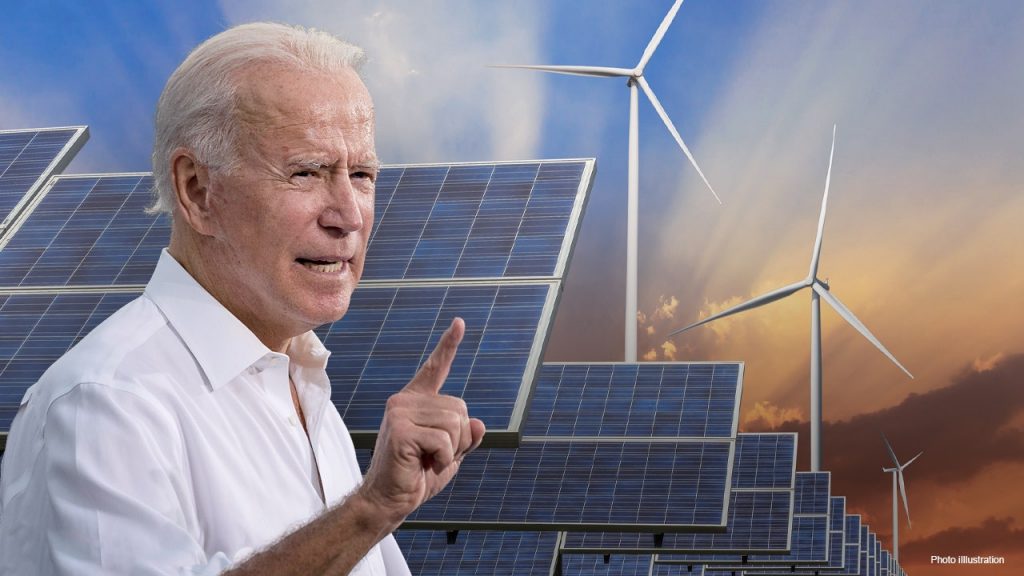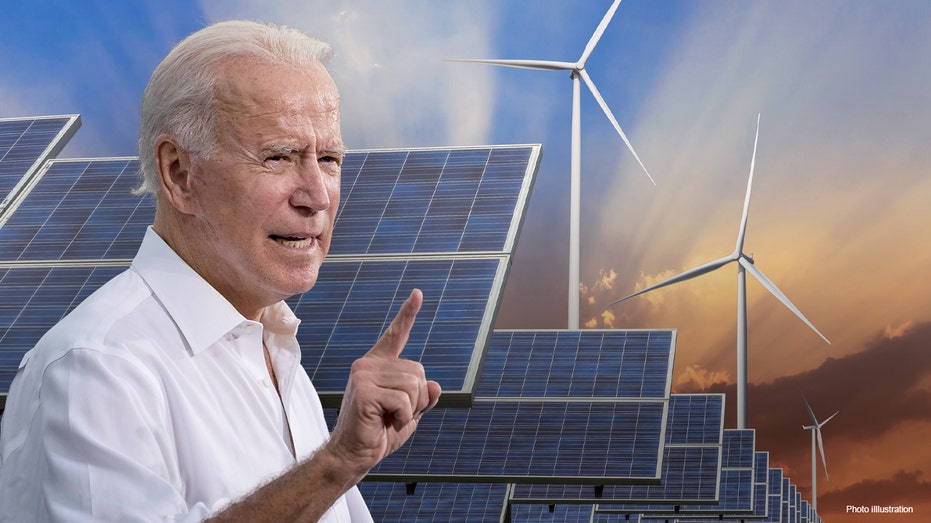
Independent Women’s Forum Senior Fellow and former EPA chief of staff Mandy Gunasekara discusses her new policy report which explains how the green agenda push for ‘climate justice’ has fueled unreliable energy systems.
Progressive energy policies fueled by Democrats and the Biden White House are leaving Americans “out in the cold,” according to a new policy report authored by a former U.S. Environmental Protection Agency (EPA) chief of staff.
“This report was important, one, to give a voice and a picture to the people who are getting behind their utility bills or they’re having their power shut off, either because they cannot pay or because of unreliable systems and the consequences of that,” Mandy Gunasekara said in a Fox News Digital exclusive on Monday.
“And No. 2,” she continued, “to present that to the public and policymakers for a call to action, because there are ways to fix this, if people are willing to set aside politics and apply a pragmatic view to this problem and come up with solutions we know will work.”
Gunasekara’s report, published by the Independent Women’s Forum where the former EPA chief of staff resides as a senior fellow, calls out “leftist politicians pushing bad ideas” like net-zero emissions goals, ESG investments and banning fossil fuels, for inciting power grid blackouts and costing Americans $14.1 billion more on winter heating bills.
ENERGY EXPERT URGES U.S. INDEPENDENCE, SAYS SECURITY MUST BE ‘BACK ON THE AGENDA’
Of these initiatives, Gunasekara warned that net-zero goals pose the most danger to U.S. energy systems, claiming liberal politicians use their access to capital to force companies to prioritize wind and solar sources as opposed to the best interests of ratepayers.

President Biden and Democrats’ green energy agenda leaves Americans “out in the cold,” former EPA chief of staff Mandy Gunasekara told Fox News Digital. (Getty Images)
Wind and solar power options can be unreliable, according to the former EPA head who noted those renewable sources “only work when the wind is blowing or the sun is shining.”
“The net-zero policy in and of itself is a misnomer. Net zero isn’t enough. It’s not going to happen if you’re being tactically honest,” Gunasekara said. “It creates a false sense of buying into something good when the consequences of buying into the policies under the umbrella of net-zero actually are very bad and detrimental to people here today.”
Around 5.3 million U.S. households rely on heating oil, the report states, with 82% of that population residing in the Northeast. As families prepare to pay anywhere from 20 to 28% more for natural gas this year, it’s lower-income earners that will suffer most, the energy expert argues.
Combined Energy Services’ Mike Taylor says Democratic Gov. Kathy Hochul’s proposal on abolishing gas stoves is ‘complete lunacy.’
“You think of retirees and our seniors, they are hit hardest when energy costs go up because a larger part of their take-home income goes to utility bills and especially electricity or power bills,” Gunasekara said. “An increase like that when you are a low-income or fixed-income individual or family is devastating. It creates all sorts of consequences and it forces people to choose between heating and eating, between taking medication or keeping their homes at unsafe levels or forgoing necessary medical care.”
With the possibility of more extreme winter weather happening all the way through early April, Gunasekara cautioned Americans to “buckle up” for higher costs ahead.
“When there’s going to be swings in the weather, there’s going to be swings on the electrical grid. And right now, our electrical grid has been downgraded because of these bad policy decisions,” she said. “What will determine how long Americans will have to deal with this, is the willingness of our leaders from the bottom of these positions all the way to the top, to work together and get politics out of the way and focus on what will actually work.”
NATURAL GAS PRICES ‘SPORADIC AND MAY BEGIN TOPPLING’
Forget wind and solar – the former EPA chief of staff proposed hydroelectric power as the most reliable and promising renewable option, and explained why lawmakers don’t often discuss plans for hydro projects.
Energy expert Alex Epstein joins ‘The Evening Edit’ to dissect the shortcomings of the green energy movement.
“The issue with hydropower is you obviously have to be close enough to a large enough water source where it makes sense, and that doesn’t exist everywhere,” Gunasekara said. “Energy policy truly is a reflection of local characteristics that have to be accounted for in the policies that are put out there. And right now, that is another major flaw, and a lot of these net-zero policies and these Green New Deal-type tactics coming from the federal government, it’s a top-down approach to energy development.”
Gunasekara’s report provides multiple solutions the Biden administration can take to no longer “leave communities out in the cold and secure energy security, which includes accepting fossil fuels, stopping taxpayer-funded market distortions, restoring grid operators’ flexibility and supporting responsible innovation and a modern workforce.
“One of the things the Biden administration could do today is really get out of the way of American oil and gas and unleash the potential that we have there from day one,” she said. “They’ve gone out of their way to cancel pipelines, make it harder to drill and explore on federal lands, make it more costly and create new regulations in the private sector, and just make it so difficult to use this resource in a way that we know how.”
GET FOX BUSINESS ON THE GO BY CLICKING HERE
Sen. John Barrasso, R-Wyo., joins ‘Varney & Co.’ to discuss the House voting to end the COVID public health emergency and Biden’s energy policies.
While that action from the Biden White House may potentially “reap a lot of benefits for the American people” and their pocketbooks, Gunasekara also called on Congress to step in and take a stance.
“Congress should get rid of the market-distorting aspects built into the renewable energy ecosystem. And this is your wind production tax credit and investment tax credits. Now, what these do, in a nutshell, is they give wind and solar an unfair advantage on paper,” the former EPA chief of staff explained. “There’s got to be a way to rebalance that so that those providing reliable heat in the short-term and the long-term can make those decisions off of what will actually work, not what’s going to come with a windfall of taxpayer credit and market-distorting benefits that, at the end of the day, do nothing good for the people who are relying on the power they actually need.”
“We just have to ensure that they are focused on what’s important,” Gunasekara added, “and what’s important is having access to affordable, reliable energy, especially heat during the middle of winter.”
READ MORE FROM FOX BUSINESS

 Latest Breaking News Online News Portal
Latest Breaking News Online News Portal




